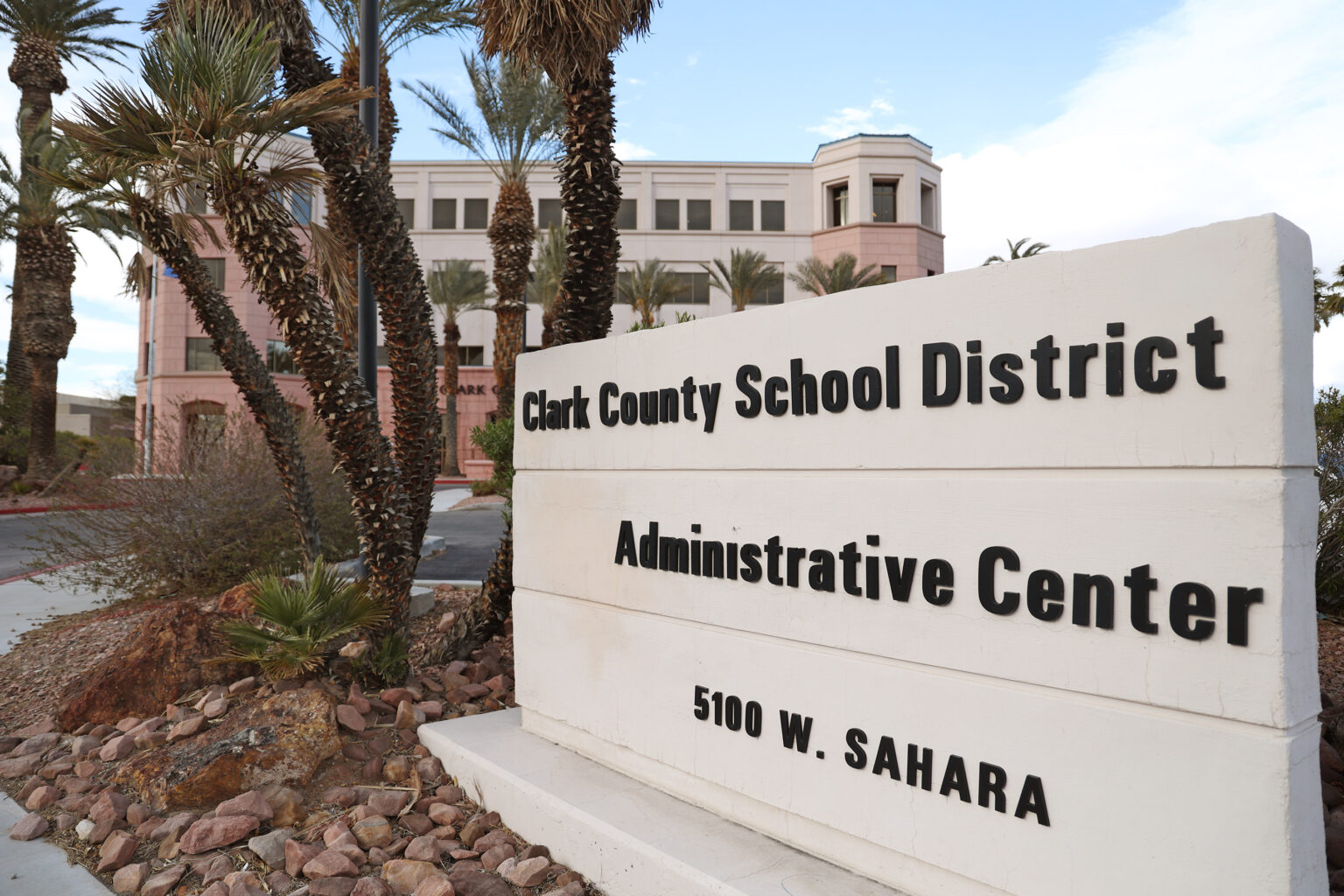4:59
Commentary
Commentary
The ones failing the hardest at CCSD are its leaders
A teacher’s journey of struggle, advocacy, and ultimately walking away
I recently took a leave of absence from teaching after a series of reports of workplace bullying, made by myself and colleagues, were not only ignored by our district superiors but dismissed by human resources. I was informed that such behavior is an inherent part of any industry (gossiping, backstabbing, shaming, etc), and it was implied that perhaps I was being too sensitive.
Given the culture of the Clark County School District (CCSD), their response shouldn’t have surprised me, and under normal circumstances, I would have been able to move on. But this last betrayal of trust became the straw that broke the camel’s back for me, as I was hanging on to my teaching career by a literal thread.
Like all educators, I “knew what I signed up for,” but wanted to make a difference and was fully aware I would never become wealthy financially. I loved teaching and cherish the joy I felt when students walked away from my classroom with more confidence in themselves. However, what I hadn’t prepared for were the cruel politics, misogyny, gaslighting, and hostile work environment that ultimately overshadowed my “why.”
Even with advanced degrees and certifications, we’re often treated like “glorified babysitters,” as highlighted in a recent court motion where teachers allegedly called in sick as a form of protest. In her ruling, the judge admonished teachers, saying parents “need to go to work and feed their families” and are “counting on you guys to show up,” and “do your job.” In other words, parents need teachers to watch their kids. As a parent myself, I empathize with those needing childcare, but this perception is insulting and disregards the complex responsibilities of licensed educators.
Unable to strike in the state of Nevada, we face a no-win situation in the struggle for improved pay and working conditions. While our contentious contract dispute has finally been resolved and the Clark County Education Association once again prevailed, CCSD educators have been teaching without a contract since the beginning of the school year. In an attempt to do my part, I wrote op-eds and letters to the editor and even created a TikTok account to advocate. While many in the public were supportive, a significant portion expressed palpable vitriol and misogyny. I was attacked in the Las Vegas Review Journal, and messages of “stop whining” and “just quit” were regular comments on my social media feed. However, my experience pales compared to a kindergarten teacher facing legal repercussions for speaking out. Deputy District Attorney, Brian Casper, is seeking jail time for her charge of “disturbing the peace.”
This feels alarmingly like the historical injustices of the Salem Witch Trials which specifically targeted outspoken women. The societal manipulation and shame associated with advocating for fair treatment is a tool to silence educators, most of whom are female.
While the income disparity is problematic, it’s not always the pay that drives teachers away. Demands to simultaneously address learning loss and the social-emotional needs of students post-COVID-19 while juggling crowded classrooms have been daunting. To make matters worse, teachers have been stripped of the authority to hold students accountable for behavior and grades in an effort to create an “appearance” of widespread academic success and reduced disciplinary actions. In 2021-2022, for example, expulsion grounds in CCSD were limited to incidents involving weapons (that was since changed, but only after a teacher was brutally attacked and raped by a student). Additionally, a new grade policy mandates a minimum of 50% final grade, regardless of effort, and hampers incentivizing formative classroom activities. This has lowered student engagement, increased classroom disruptions, and hindered learning for everyone. The toll on educators is immense and I experienced my first panic attack in the 2021-22 school year as a result.
Those who were opposed to giving educators the contract we were fighting for point to Nevada’s dismal ranking in academic performance and unfairly place the blame solely on teachers. It’s akin to blaming cashiers for stores closing due to declining profits – the responsibility lies with leadership, not the frontline workers. Yet, many hold teachers accountable for failing schools despite our being at the mercy of those who make decisions on how we do our jobs.
I am no mathematician, but even I can connect the dots: CCSD’s decline in student achievement and steady rise in teacher vacancies has everything to do with failed leadership. Despite the data, and prominent legislators and educators calling for the superintendent’s removal, however, district officials refuse to take responsibility. While the approved raises for educators may entice new talent to the district, student achievement and educator retention will continue to decline so long as this issue is not addressed.
As I reflect on my experiences, I recognize that my story is not unique and is symbolic of the issues that plague educators nationwide. The strain on our mental health and the burden of shouldering systemic failures is a narrative familiar to many teachers. But as I considered returning to the classroom after my leave of absence, I came to the realization that the last thing I should do is go back to the place that broke me.
A teacher’s work environment is our children’s learning environment. I implore the public to lend their voices to the collective outcry for change in education by voting for school board trustees and other policymakers who recognize the importance of empowering educators to shape the direction of our classrooms. Your engagement will ensure a brighter future for both teachers and students alike.
Our stories may be republished online or in print under Creative Commons license CC BY-NC-ND 4.0. We ask that you edit only for style or to shorten, provide proper attribution and link to our website. AP and Getty images may not be republished. Please see our republishing guidelines for use of any other photos and graphics.





Kelly Edgar